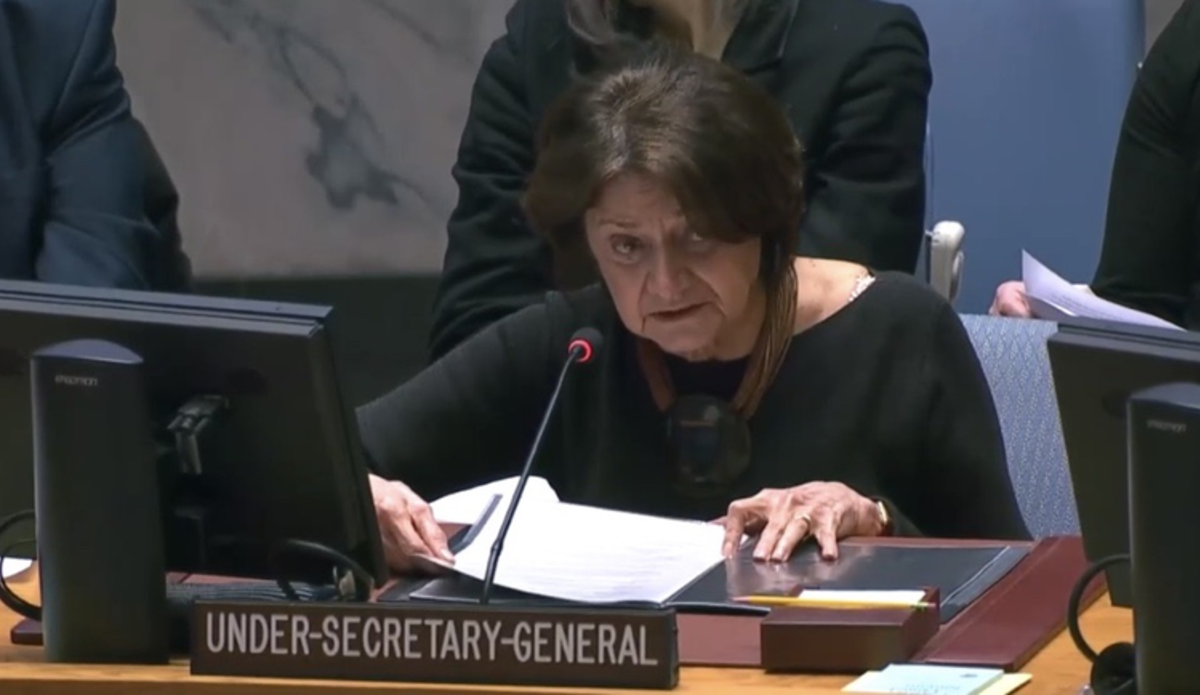UNDER-SECRETARY-GENERAL ROSEMARY A. DICARLO’S
REMARKS TO THE SECURITY COUNCIL ON
THREATS TO INTERNATIONAL PEACE AND SECURITY
New York, 21 FEBRUARY 2023
On 30 September last year, Assistant Secretary-General for Economic Development at the Department of Economic and Social Affairs Navid Hanif briefed this Council on the reported leaks in the Nord Stream pipelines. His briefing was based on information and data from publicly available sources.
My briefing today is based on publicly available information that we have to date.
As Assistant Secretary-General Hanif said in September, in the course of 26 to 29 September 2022, four leaks were detected in the Nord Stream undersea pipelines in the Baltic Sea, near the island of Bornholm.
The first leak was reported on the Nord Stream 2 pipeline in the morning of 26 September, when seismologists detected a spike in activity.
The second and third leaks were reported in the evening of 26 September on the Nord Stream 1 pipeline.
A fourth leak was reported in the morning of 29 September on the Nord Stream 2 pipeline.
Neither pipeline was in operation. Supplies in Nord Stream 1 had been halted in September, while Nord Stream 2 never entered service. However, the pipelines reportedly held several hundred million cubic meters of natural gas at the time of the incidents.
Following the incidents, Danish, German and Swedish officials announced they would launch separate investigations into the leaks. The Russian Federation expressed interest in joining these investigations, while also expressing concern that a deliberate act of sabotage and terrorism might be to blame for the explosions that caused the leaks.
On 18 October, Copenhagen Police reported that a preliminary investigation into the leaks found that “powerful explosions” caused the damage.
A month later, on 18 November, the Swedish Security Service and Prosecution Authority reported that, according to their preliminary findings, the pipelines had been subject to “gross sabotage.”
Swedish officials stated that, in the investigations carried out onsite in the Baltic Sea, investigators documented extensive damage to the gas pipelines resulting from detonations.
Swedish authorities also said they had seized “foreign items”, and that explosive residue was identified on a number of those items.
According to officials quoted in local media, the investigation is ongoing.
On 4 February 2023, the German Attorney General stated that their investigation was also continuing. We understand that the Danish investigation is continuing as well.
We are also aware of new reports alleging acts of sabotage involving the two pipelines.
I reiterate that the United Nations is not in a position to verify or confirm any of the claims relating to these incidents and that we await the findings of ongoing national investigations.
Given the sensitivity and speculation regarding this issue, we urge all concerned to show restraint and avoid any speculation.
We should avoid any unfounded accusations that could further escalate the already heightened tensions in the region and potentially inhibit the search for the truth.
And while we don't know exactly what happened beneath the waters of the Baltic Sea in September 2022, one thing is certain: whatever caused the incident, its fallout counts among the many risks the invasion of Ukraine has unleashed. One year since the start of the war, we must redouble our efforts to end it, in line with international law and the UN Charter.
Thank you.

